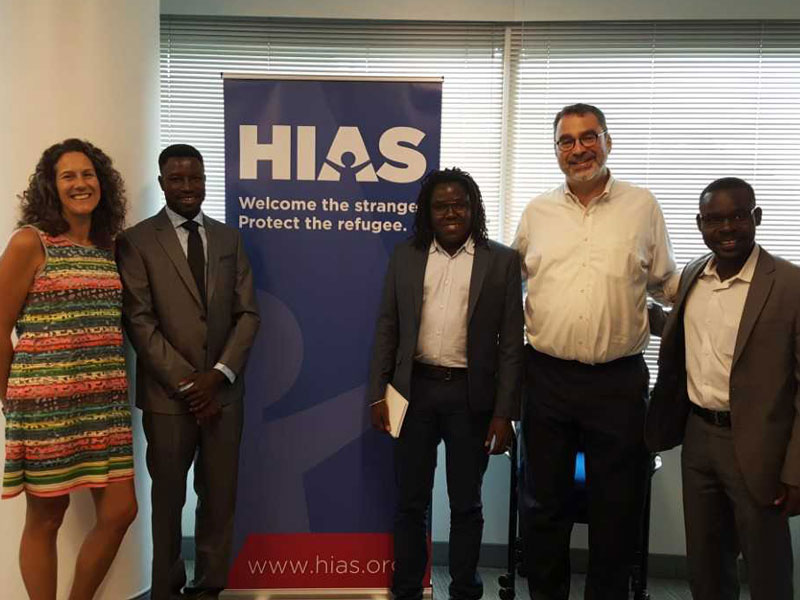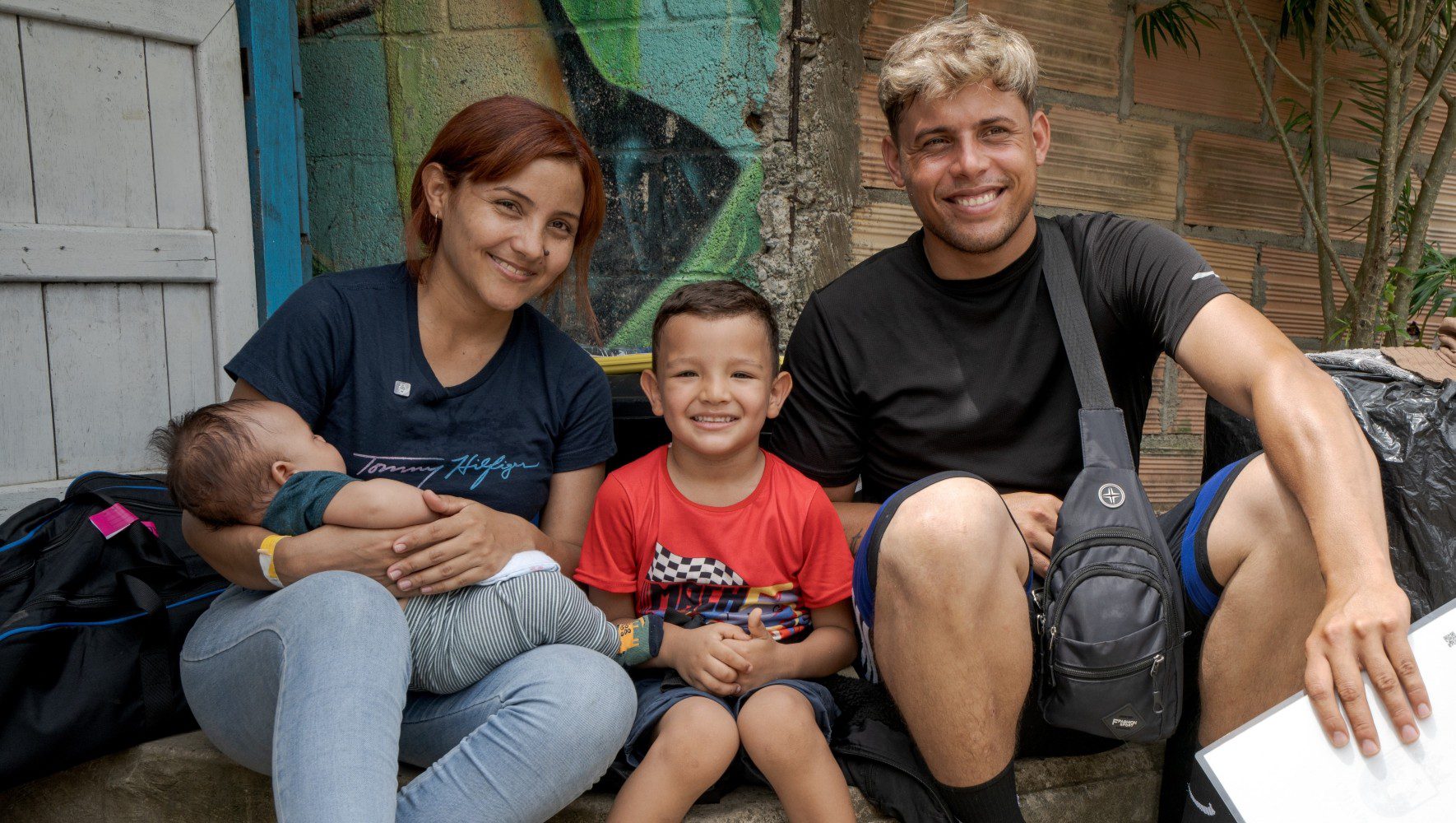Darfuris in Israel Are Grateful, But Challenges Continue
By Andrea Gagne, Public Affairs Assistant
Oct 10, 2018

L to R: HIAS' Associate Vice President Program Planning and Management Rachel Levitan, Usumain Baraka, Monim Haroon, HIAS CEO and President Mark Hetfield, and Taj Haroun.
(Andrea Gagne, HIAS)
When life gives you hardship, you express gratitude.
That seems to be the resilient and positive outlook for Monim Haroon, Taj Haroun, and Usumain Baraka, all Darfuris living in Israel. They are not refugees and their legal status tells their story, but not all of it.
Three months ago, these three young men had no chance to board a plane or cross an international border. Like the rest of the approximately 35,000 African asylum seekers residing in Israel for the past decade, they had no way to receive the protection that comes with gaining refugee status; in fact, fewer than one percent of the Eritrean and Sudanese asylum seekers who fled to Israel seeking protection have actually been granted an official refugee status.
Despite paying inflated tax rates to the government, asylum seekers are excluded from public assistance and have to pay for any services out of pocket. Their right to work is restricted, and in addition to the taxes, the government withholds an additional 20% from each paycheck, which is part of an incentive program aimed at coercing asylum seekers to leave the country through forced poverty.
Yet the three friends have a sense of deep gratitude for their new country. In Israel, they say, they did not fear that the police would break down their door in the night and arrest them. They had no fear of being deported back to Sudan, where their lives would be in danger. Upon arriving in Israel, the three men were able to sleep through the night for the first time in years because they felt they had the most basic of needs met: they were safe.
They have come a long way. Monim Haroon now works as a Community Coordinator for HIAS Israel and is an activist in Israeli and international media, giving TV interviews and being profiled in newspapers. He is currently pursuing a degree at Hebrew University in Jerusalem. Taj Haroun is a co-founder and CEO of African Students Organization (ASO), a registered NGO in Israel. He holds a BA from Herzliya IDC and a Master’s degree from Tel Aviv University. Usumain Baraka traveled to Israel as an unaccompanied minor at age 14, after his father and older brother were killed by Janjaweed militants in the Darfur region of Sudan. He is now 23 and in his third year studying for a BA in Government at Herzliya IDC.
Earlier this year, the Israeli government attempted to implement a new deportation policy that would forcibly remove Sudanese and Eritrean asylum seekers from the country. However, thanks to an immense public outcry from the Jewish community in the U.S. as well as inside Israel, the government agreed to temporarily suspend the deportation program. For the time being, their community is safe again, but it is unclear for how long.
With the help of HIAS’ legal team, Haroon, Haroun, and Baraka were able to appeal to the Israeli Immigration Tribunal and request that the Ministry of Interior determines their refugee status. As a result, even though they did not get formal recognition of their refugee status, the Tribunal ruled that the men would receive a “Temporary Residency status until their asylum requests are decided. The Israeli government may not recognize their asylum claim, but practically speaking the men have all the same rights as legal residents in the country. With this status they were able to get an Israeli travel document which allowed them to come to the U.S.
They recently came to the U.S. on a trip sponsored by Joey Low, a New York businessman and philanthropist who is founder of Israel At Heart, a non profit that supports asylum seekers. In Washington, on a recent mission to tell of their experiences, the group met with representatives from the Anti-Defamation League, the United States Holocaust Memorial Museum, the U.S. State Department, the Congressional Black Caucus, and many leaders from the Jewish community. They told each group they are grateful for the protection they have received in Israel, and asked for help in taking the next steps forward for a sustainable and durable solution for their people.
As Haroun explains, “I am grateful that I got the opportunity to leave Israel after 10 years, and I want to make sure that my voice reaches those who stood with us in difficult times. I am grateful as a person, but also we as a community are grateful because of the support we got from the Jewish diaspora. We managed to postpone the deportations and we still have a lot of challenges ahead of us. We should continue to work until everyone is able to travel too.”
Along with representing individual legal cases in court, HIAS Israel also works to pursue strategic litigation in Israel so that more asylum seekers in Israel can achieve this same residency status and the protection that comes with it. In the past few months, HIAS Israel filed individual appeals for almost 800 asylum seekers from Darfur and other conflict areas in Sudan, and is leading principle appeals in the District court in Jerusalem.



